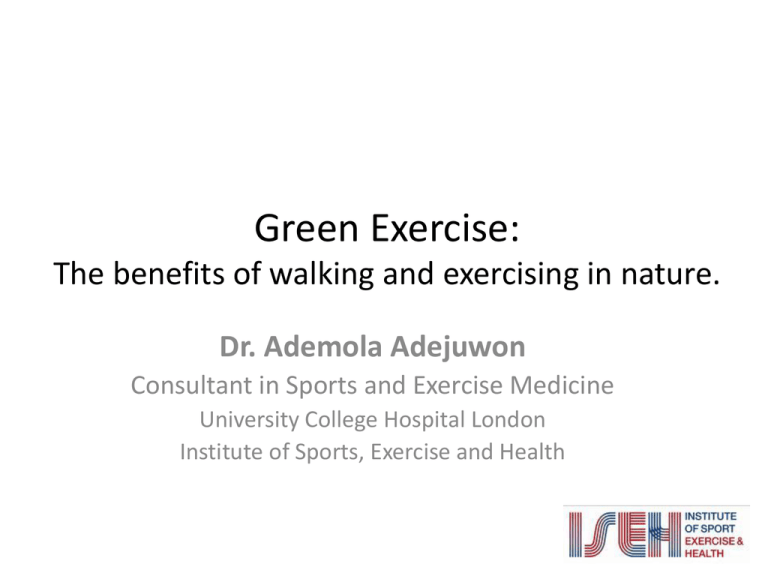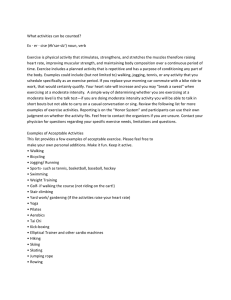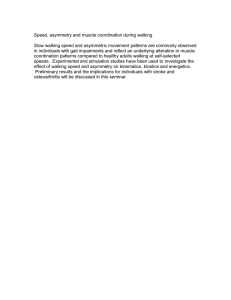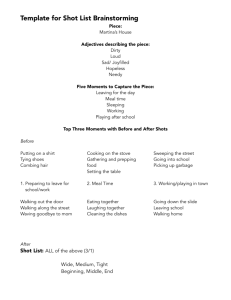Green exercise - Dr Ade Adejuwon
advertisement

Green Exercise: The benefits of walking and exercising in nature. Dr. Ademola Adejuwon Consultant in Sports and Exercise Medicine University College Hospital London Institute of Sports, Exercise and Health • Highlight the importance of physical activity. • Why walking is an ideal form of exercise. • The health benefits of being active in nature. WHO - Global Health Risks 2009 Health benefits of physical activity • Regular physical activity at the correct intensity: – – – – – – – – – Reduces the risk of heart disease by 35% Lowers the risk of stroke by 30% Reduces the incidence of diabetes by up to 50% Reduces the incidence of high blood pressure, by almost 50% Can reduce mortality and the risk of recurrent breast cancer by almost 20% Can lower the risk of colon cancer by over 30-50% Can reduce the risk of developing of Alzheimer’s disease by 40-45% Can decrease depression by 20-30% (as effective as Prozac or CBT) Reduce/delay onset and severity of sarcopenia Risk of cardiovascular disease mortality by cardiorespiratory fitness and body mass index categories. Church TS et al. Arch Int Med 2005;165:2114–20 “Walking is man’s best medicine” - Hippocrates • Low impact, accessible, acceptable, low cost • Anywhere and anytime • No specialist training or equipment required • Low risk of injury • Sociable Walking is Exercise Exercise is Medicine “Vitamin N” Nurture with Nature Physical activity Exposure to nature Green exercise Regular exercise in natural environments halves risk of poor mental health. (n=1890) - Mitchell, 2013 Pretty, Peacock, Sellens and Griffin (2005) Additional benefits of walking outside • Appreciation of nature/environment • Vitamin D • Role model effect Summary • Walking is an acceptable form of exercise conferring all the benefits physical activity. • Walking outdoors has a 50% greater effect on mental health, well being and mood compared to exercising indoors. • The effect of exercising and being outdoors appears to be synergistic. Questions? • www.LESOC.co.uk • www.ISEH.co.uk











